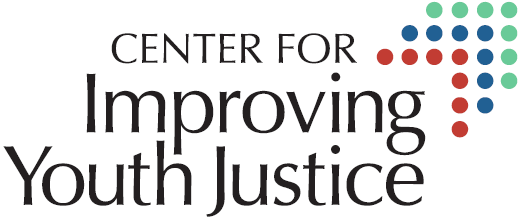On March 24 Massachusetts Gov. Charlie Baker closed down all non-essential businesses, sending Nancy Carter and the central office staff at the Department of Youths Services (DYS) home. As the director of residential services since 2004, Carter wondered what she could and should do. It didn’t take her long to figure it out.n“We just began to make pragmatic decisions and change the way we do business,” she said recently. But what was more difficult was feeling comfortable being able to work remotely while her team was working day in and day out in facilities. “I want to roll up my sleeves and help and I can’t physically be there,” she said. Like so many others, she sang the praises of the juvenile justice professionals who showed up daily to care for youths in residential placements.n“The true heroes are the direct care staff, the juvenile justice youth development specialists, who show up day in and day out, risking their own health and their families’ in order to be with the youths,” she said.n“They need the awards, time off, something to acknowledge that they put their own health and their families’ at risk,” she added.nDYS’ pragmatic options started with shutting the front door to decrease the youths’ risk of exposure from people coming in. All case workers, teachers, visitors, attorneys and family members were prohibited from entering the nearly 50 residential facilities programs operated by DYS. Only the direct care staff and the Department of Children and Family social workers were allowed in the buildings with the youths.nFor the few allowed in, DYS established a single point of entry at all buildings and screening protocols based on the Centers for Disease Control (CDC) guidelines. Security officers were trained to be screeners, use infrared thermometers and make sure to bring a change of clothing so they wouldn’t bring anything they were exposed to at work to their homes. Anyone with any symptoms was told to stay home.n“Miraculously, across all the provider and state-operated programs, we had a consistent approach,” Carter said.nNew policies were written to guide mealtimes, group work and programming for youths, clinical work and family counseling. The programs tried to maintain as much normalcy in the daily schedule as possible for the youths. Mealtimes were the most difficult, Carter said.n“We’ve been working on family as an agency priority for years,” she said, which included creating family-style meals for youths and staff and open visitation for families. Meals were times for connection and when staff and youths engaged in discussions of the day. Now for safety purposes, they were replaced by pre-boxed lunches are delivered to the youths in their living units. Families who had been able to visit a facility at any time were restricted to visiting using video.n“We had to take steps backward temporarily for safety purposes,” Carter said, “But it really puts things into perspective about how much we’ve evolved.”nEager to resume family visitation in July, DYS created new policies to allow family visits with specific requirements to keep everyone safe: they must be outdoors, limited to two family members/guardians, scheduled in advance in one-hour time blocks. Visitors will be screened using a COVID-10 questionnaire and be required to wear masks for the duration of the visit. DYS will provide a cloth mask for the first visit.nFamilies and youths were the priority in discussions with DYS about releasing a youth home during the pandemic. Understanding and acknowledging family situations are characteristic of DYS. “We looked to see if anyone at home was sick, how many other kids there were, can the Mom/ or guardian handle it all,” Carter explained. Some youths wanted to stay in facilities so they wouldn’t get their families sick. Many case workers picked up the free lunches at schools for the families and dropped them off on families’ porches, she said.nFunding has been available to help families and youths with internet access and DYS has increased its inventory of laptops and chrome books for visitations. Carter said that as they navigate the re-opening process, they are rethinking the staff roles and how to allow for more remote work, how to provide accountability for employees and meet the agency’s goals. She will be reading responses to PbS staff and youth surveys closely.n“We want to understand the impact to better prepare,” she said, because what’s next is uncertain.
